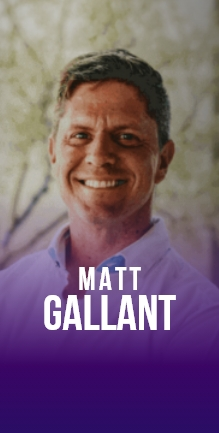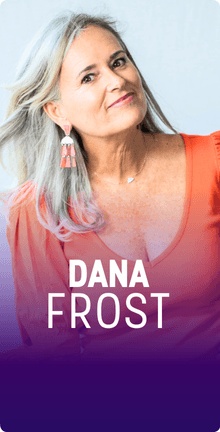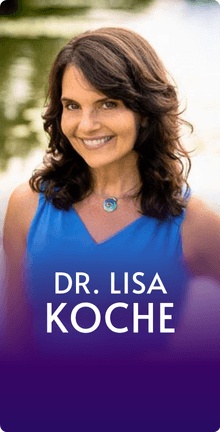In this Episode
- [00:30]Stephan introduces his next guest, Dr. Will Cole, a leading functional medicine expert who consults people worldwide via virtual visits, having started one of the world’s first functional medicine telehealth centers.
- [02:30]Dr. Will shares his books about putting wellness first and the importance of healthy boundaries.
- [07:46]Dr. Will explains the difference between medicine and biohacking.
- [10:54]Stephan is curious about some of the biohacking protocols that Dr. Will prescribes to his patients.
- [15:09]Stephan shares a book about Applied Kinesiology and asks for breakthrough alternative therapies that Dr. Will can get for his patients.
- [19:45]Dr. Will discuss the procedures for diagnosing chronic fatigue and identifying its root cause and factors that lead to it.
- [25:23]Stephan shares stories of people having diseases that took a decade to know what it was and further asks Dr. Will about the methods of finding something that has been elusive for a decade.
- [31:24]Dr. Will give examples of newer or more advanced labs compared to ten years ago.
- [38:35]Stephan wants to know Dr. Will’s thoughts on celery juice that gives a positive feeling when taken daily.
- [41:25]Stephan asks Dr. Will if he does grounding, red light therapy, or infrared saunas.
- [44:20]Dr. Will explains the importance and benefits of taking binders.
- [45:16]Have a consultation with Dr. Will Cole by visiting his website. Also, listen to his popular podcast, The Art of Being Well and grab a copy of his books – Ketotarian®, The Inflammation Spectrum®, and the New York Times bestseller Intuitive Fasting®.
Will, it’s so great to have you on the show.
Thanks so much for having me.
Let’s start off with how you ended up writing The Art of Being Well. By the way, I’m co-author of The Art of SEO, so I love where you’re going with your book title.
Actually, The Art of Being Well is my podcast. It’s not my book.
Oh, right. Okay. What’s the name of your book, because it’s not in your bio?
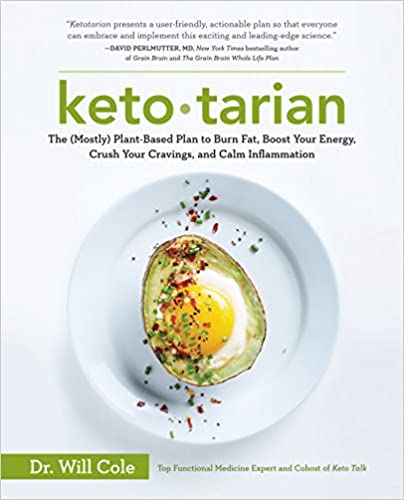
Yeah, it’s okay. I’ve written a few books. My first book is Ketotarian. My second book is The Inflammation Spectrum. My newest book is Intuitive Fasting. The Art of Being Well is my podcast. It’s just a major component of what I do in functional medicine.
There’s this duality of health and wellness as the science and the art. The art of wellness is something that is implementing the best of clinical nutrition, and science, and the data, and implementing it into your life in something sustainable. That’s why I call it The Art of Being Well, the podcast.
All this stuff is predicated on the fact that what I do is I consult patients 10, 11 hours a day. You kind of boil that into the books and boil that into the podcast. I just love this stuff so much.
Wow, that’s a lot. How do you keep going? When I have back to back calls for five hours at a time, it’s exhausting. I just don’t have anything left. I don’t know how you do it.
I have to practice what I teach my patients. It’s really putting my wellness first and having healthy boundaries. Even if I’m busy, I still have healthy boundaries and really carve out what I need to be the best that I can be for my patients, because it is a sacred responsibility. I am holding space for people that are going through very heavy things, meaning, they’re struggling with autoimmune problems, chronic fatigue syndromes, and chronic infections like mold toxic. I mean really not walks in the park, like very heavy stuff.
Me being the best version of myself, being on point, being sharp, and being present for them, is part of the job. I can’t just phone it in. It’s just a way of life for me. It’s just a way of life. What I try to teach my patients is to have this sort of intuitive awareness on what your body loves and what your body hates.
If you even notice, we’re consulting patients here all day long. I’ll have plants in here, essential oils going. I’m eating clean foods. I’m taking my supplements. All the things that I’m telling my patients is to really make your life conducive to how you want to feel. If something’s out of alignment, it should go away.
You really need to have healthy boundaries. I think a lot of people just settle for going about their day without really taking inventory of what actually serves them and what’s the saboteur, what’s out of alignment with how you want to feel and the life you want to live.
The art of wellness is implementing the best of clinical nutrition, science, and data, and implementing it into your life as something sustainable. Share on XRight. How do you not take on everybody else’s problems, bad energies, and so forth, when you’re working with so many different people? That stuff rubs off energetically. It might sound a little woo-woo, but I believe it to be true.
Yeah, it is true. People, especially people like myself who are more empathic too, that’s part of the healthy boundaries part. We start our day off as a clinic. We’re telehealth entirely. I started one of the first functional medicine telehealth centers in the world over a decade ago. This has been my main focus for a long time.
Most of my team is here in the telehealth center here locally. We start our day off with a prayer and meditation for our patients, but also for ourselves as a team. It’s really just grounding practices, staying consistent, but also making your life and meditations. It’s not just that sort of corporate, formal thing that we’re doing as a team, but it’s also, okay, what am I doing in between visits?
I do meditation in between consulting patients. I can’t go back to back because I accumulate that energy throughout the day.
I will do meditation in between consulting patients. I can’t go back to back, because you are accumulating that energy throughout the day. That’s just carved into my schedule to be, again, the best I can be for the people that I’m serving.
How do you define yourself? Are you a functional medicine guy? Are you a biohacker? Are you a spiritual guy? How would you introduce yourself to somebody you’ve never met before?
I’m a functional medicine doctor. I’m a functional medicine practitioner—that’s my main. That’s how I would describe myself. That’s what I do. It all kind of stems from that, I guess, professionally. But spirituality and this mental, emotional, spiritual side of it is part of functional medicine. It’s all one in the same.
Another word for functional medicine is integrative medicine. It’s sort of integrating all of these aspects of health and wellness. It’s the spiritual side of it. That’s where we are cultivating mindfulness practices and meditation practices or for some people, with prayer events if they’re on that level. For some people, just going out in nature and using that as a meditation, because those things influence inflammation levels.
They influence somebody’s healing. They influence many things. I think that’s why functional medicine, it really comes down to that, because it’s integrating all of the science and art of all of this stuff.
Yeah. How do you work on somebody remotely? Health seems like something that just came out of nowhere because of the pandemic, and you’ve been doing it for a decade. How do you make that work when sometimes you need to put your hands on somebody to tell if they have a swollen lymph node or something like that? It’s really hard, I would imagine, to do all the diagnosing remotely over a Zoom call.
Yeah. We’re not replacing somebody’s primary care physician or GP. We’re not replacing their chronologist or rheumatologist. They still have their local doctor for all that stuff. We make that abundantly clear from the outset that we’re not obviously replacing their GP. What we are doing is providing functional medicine, guidance, clinical monitoring, labs, and seeing it through from a functional medicine perspective while coordinating when it’s needed with their local physician. That’s another way that we’re integrating things.
Okay. All right. Can you explain the difference between medicine and biohacking? We did meet at a biohacking conference. I’m curious to hear what you consider are the differences.
Functional medicine is a field of healthcare.
Functional medicine is a field of healthcare. Biohacking can be a part of functional medicine. Functional medicine, let me define that. I think it’s better contrasted with conventional medicine. Biohacking fits in within that. It fits within what we do in functional medicine.
There’s a lot of overlap component of it, because it’s really living your best life, optimizing your health, finding out ways to take your health to the next level, basically. That really has it in common with functional medicine, biohacking does.
The first thing we do differently in functional medicine is we’re looking at labs using a thinner reference range of optimal. Definitely, a commonality between biohacking and functional medicine is optimal, not average, because the lab’s reference range that you’ll get on your standard conventional labs is largely a statistical bell curve average of people who go to labs. People who predominantly go to labs are people that are sadly going through health problems.
There are a lot of people that go to their doctor, and they want to find out why they’re going through their health issue, whether that’s fatigue, weight loss resistance, some inflammation issue, some neurological problem, whatever the case may be, or hormonal issue. They’ll go to the doctor and the doctor says, glad you’re fine, you’re just depressed, here’s an antidepressant, or you’re just getting older, or you’re just stressed out, you’re just a new mom.
They explain away how this person could be having these symptoms, despite these “normal labs” or they’ll say they’re crazy. They will allude to the fact that the person is hypochondriac, they’re exaggerating, or they must be doing something wrong. They’re not telling them what they’re unintentionally telling that patient. You’re a lot like the other people with health problems that we’re comparing you to.
Comparing yourself to people with health problems, there’s no way for you to find out how you can feel your best. That’s definitely something that biohacking and functional medicine have in common when it comes to labs. I think that’s why there are so many people within the biohacking community that are my patients, because they really want that guidance. They really want to get to the root cause, and they really want to look at optimal, not average.
We look at the root components as to why people have issues.
We realized that we can’t just look at the superficial labs either. That’s another thing that we do in functional medicine. We’re looking at the root components as to why people have issues. Things like underlying gut problems, chronic infections, nutrient deficiencies, or hormonal imbalances, and from a diagnostic standpoint, to get objective data and really be data-driven to see those numbers improve as we’re integrating protocols in somebody’s life.
Another aspect of functional medicine is bio-individuality. We’re all different. It’s not this cookie cutter, one-size-fits-all approach to getting well. We’re using food as medicine, we’re using natural medicine, we’re using medications when needed.
There are other therapeutic tools, other biohacking tools, other more advanced protocols when needed to really get that person’s labs, and therefore, their life optimized. That’s really a functional medicine of which it resonates quite a bit with the biohacking world.
What are some of the biohacking style protocols that you prescribe to your patients that you use yourself in your daily life in terms of your health maintenance?
I’ll just take my patient base to give you some context. We’re dealing a lot with people with autoimmune issues or there’s somewhere on that autoimmune inflammation spectrum. They may not be diagnosed with an autoimmune condition, but maybe they just want to prevent themselves, mitigate risk factors, do everything they can to decrease risk factors to become that or are struggling with fatigue. Those are my main patient base.
For those people, some common biohacking things or what I would consider biohacking things are things like cryotherapy. It’s something that we integrate from attenuation of different inflammatory problems, sauna therapy, definitely a major part of that, breathwork meditation. These are age old things that we call biohacking now. Really, they’re popular amongst the biohacking world, but these are very old things.
What else? Peptide therapy, we use that. We can get a little bit out there with some patients that are struggling with very resistant autoimmune problems. We’re discussing with patients about helminthic therapy, which is a little bit out there, but they’re basically good worms. There’s some compelling research out there, still developing.
We explore these more out-of-the-box things when needed.
We explore these more out-of-the-box things too when needed. Certainly, not everybody needs that, but these elements are our way to sort of reset the microbiome to people that are struggling with different autoimmune problems. That’s used sometimes. Then of course, the more mainstream like food or natural medicines, fasting protocols. These are the types of things that I’m clinically monitoring, coaching, and really tailoring based on the individual, because not everybody has to do all of those things.
Back to the science and the art of wellness, there are many people in the biohacking community that end up becoming hyper-focused and obsessive about all the things, where all the things aren’t necessarily needed. What are the needle movers for you? What is your art of wellness? That’s always what I’m trying to suss out for them based on the data, based off of data, and also clinically monitoring them and guiding them, and getting rid of things when they’re superfluous, where they’re sort of obsolete.
Maybe we needed them for a time, but they don’t have to keep doing them and editing down, basically. What are the most impactful tools within their toolbox of feeling great? Biohacking is part of that, but sometimes it needs some good old editing from the likes of me to have it be sustainable for them, because they end up doing all this stuff and wasting their time on things that aren’t necessarily needed.
Right, or taking 10 times the number of supplements that they really need. I take more supplements than I need, for sure. I just don’t know which one to take.
Exactly, and that’s normally what I hear from patients. I see the big list, and then I’ll say, hey, do you notice any needle movers or is it hard to tell? It’s hard to tell, because there’s this massive supplement graveyard that you’re taking it all together, and it all makes sense. Most of it, always, is well-intentioned, makes sense, it’s thoughtful, it’s good quality. It’s high-quality stuff.
There's no cookie-cutter, one-size-fits-all approach to getting well. Everyone is unique and different regarding establishing what's best for one's health. Share on XMost of our patients are extremely erudite when it comes to this stuff. It’s not that it’s bad, it’s just not necessarily needed. We can sort of boil it down to, what are the most impactful things? We don’t always know that out of the gate. But as we’re constantly monitoring, coaching, looking at labs, and adjusting things appropriately, we could start to really pair it down.
What do you think of muscle testing as a way to get a sense for whether a supplement, vitamin, or whatever is beneficial or superfluous?
It’s not really part of functional medicine. I’d say, anecdotally, I have patients that tell me from other practitioners, they found that to be helpful. I know some people swear by it. I don’t want to delegitimize it, but it’s definitely not something that we do at functional medicine.
I’m reading the book or listening to the book, Power vs. Force. Are you familiar with that one? That’s a good book.
I’ve heard of it, but I haven’t read it.
There’s real science to muscle testing. There really is. Applied Kinesiology is what they call it, I guess, in the science world. It’s an impressive piece of work, that book. You might check it out.
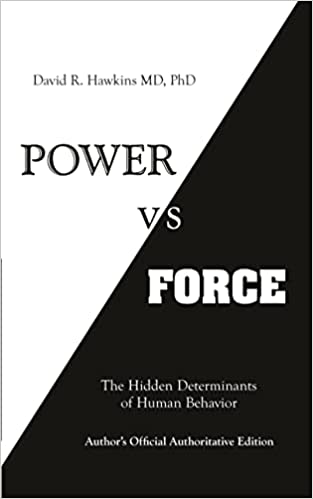
Yeah.
What about things like fecal transplants and more extreme therapies for folks who have irritable bowel syndrome or something? Crohn is really debilitating. What kind of breakthroughs can you get for your patients or clients through alternative therapies or more kind of cutting edge stuff?
Yeah, I think it’s promising. There are certain cases where that’s appropriate or maybe should be explored and you should talk with your doctor about it. It’s only really approved in the United States with cases of C. diff. But I think that is a pointer to a lot of different types of cases, that people that have acute inflammatory problems of the gastrointestinal system of how series of fecal transplants could be beneficial and supporting healthy modulation of someone’s gut microbiome. It’s one of the tools within the toolbox when it’s needed.
Sometimes we’re facilitating with other clinics in different countries to have it done appropriately. I don’t think that people need to be going and blending up their poop in a blender and doing it on their own. It’s clinically monitored. Not recommended. Talk with the doctor, definitely.
The negative side of something like that is I’ve seen horrible flare-ups from cases like that, fecal transplants as well, because they’re doing it with the best of intentions, but they’re really modulating their microbiome. We don’t really know the full complexity of somebody’s microbiome, and you’re getting things that may have been fine in this one person, but you’re getting this massive dose of it through a fecal transplant.
I see people have big flare-ups of symptoms. They will calm down, and we’ll get it under control. There are potential unwanted side effects from messing with your microbiome, for lack of a better word. We’re adjusting your microbiome in such a significant way.
Right. It’s not just about the bugs that are growing in your gut. It’s also about your genetics and how easy or hard it is for toxins and baddies to get into your system. For example, going over in an interview with Dr. Kashif Khan. He’s CEO of The DNA Company, who went through my results from the DNA test that I took a few months ago.
He’s like, the bad news is you have a gut that gets infiltrated by toxins and so forth very easily. You have a low defense against that. Your immune ability to keep that out is really low, genetically. That plays into whether you would ever consider doing a fecal transplant or something that you’re comparing someone to you and not realizing their genetics are completely different than yours.
Yeah, the interplay between epigenetics and genetics. You’re absolutely right. Time will tell, I think, for these practices. I think that they should be explored. I think they should be researched. I think people need to be asking these questions. But I don’t think it’s as simple as, take this, your problems are all solved.

It may be a tool within the toolbox and be worth exploring for some people that have exhausted all other options, but it does not stop eating McDonald’s. Swallow some worms and have a poop transplant on the next day. It’s like, let’s try to look at many other more concrete, reliable tools within the toolbox. For some people down the road, it may be something that they can talk with a doctor about.
Definitely stop the McDonald’s though.
Yeah, start there if you haven’t.
How do you diagnose somebody coming into your practice with chronic fatigue? They have no idea when it started, how it started, what sorts of potential factors come into play. They just are exhausted all the time, and they can’t remember a time when they weren’t. How do you come to find what’s the root cause of it?
It starts with the health history. It’s really not a very sexy part of it all, but it’s so foundational. I think it’s not giving in the respect and the art that it deserves because a very solid health history, which involves just the earlier statement of holding space for somebody and listening, but also asking the right questions and really following up with secondary and tertiary questions that are needed to pry sometimes, to really delve into the places in that person’s life and health history, what they’re going through. Delve in places that maybe have never been looked at from a conventional medicine standpoint and, oftentimes, even the alternative world.
Most of my patients who have exhausted conventional medicine, for the most part, may have seen a lot of great people within the alternative health world too. Most of them are better off than they would be if they weren’t doing all the things that they’re doing, like I mentioned, but they’re not where they need to be.
Functional medicine and biohacking are science and art combined. It is backed by scientific facts and theories simultaneously, and it’s about making those connections in advancing the practice. Share on XA health history really illuminates things that haven’t been looked at. Giving it a fresh perspective and a thoughtful insight into, I think, are what these people need. Chronic fatigue syndrome is no exception to that. People that are struggling with autoimmunity, chronic fatigue syndrome, or what we call mystery illnesses is typically what medicine will label it is. They really deserve that time.
I’m spending a good hour at least on the initial consultation, where I’m really talking to them via webcam and looking at any past labs they’ve done. I’m looking at all the things that they’re doing currently or have gone through. Maybe starting back from birth on, and really going through what’s their story, and really what needs to be looked at, and what maybe needs to be updated that has been looked at.
Oftentimes, I see patients doing good things, but they’re not dosing appropriately. They’re not giving it the time that it needs, they’re not filling in the gaps with things that are missing, so it all fits perfectly sort of like a perfect storm of great things. It’s not just always a new perspective. Sometimes, it’s looking at the things that are good that just aren’t being done appropriately or in the right amount or given the time that it needs.
Chronic fatigue syndrome, specifically, after the health history, then we see what’s needed. What sort of protocols are needed? What sort of labs, if any, are needed to either update data or to look at things that haven’t been looked at? It’s normally a bit of both.
Chronic fatigue syndrome is just like so many other diagnoses. It’s just a description of how the person is feeling.
Chronic fatigue syndrome, specifically, since you mentioned that, it’s just like so many other diagnoses. It’s just a description of how the person is feeling. I mean, chronic fatigue syndrome. Anybody that has CFS will already tell you, yeah, I already know, I’ve been tired for a long time.
It’s not really telling them why they have the problem in the first place. It’s just our nice way in modern medicine to say, let’s put you in a box, let’s give you a diagnosis code, an ICD-10, and let’s label you with that. That’s similar to things like fibromyalgia. Think about that. It’s just telling you how the person is feeling, or people that have irritable bowel syndrome, or even autoimmunity as a whole. It’s immune system attacking itself. It doesn’t explain why, it’s just describing the general symptoms and mechanisms.
We want to find out why we have the problem in the first place in functional medicine. If someone has chronic fatigue syndrome, for one person, it could be A, B, and C reasons. For the next person, it’s D and F. Chronic fatigue syndrome, fatigue, digestive problems, neurological symptoms, or whatever we’re talking about, we see those as just checking engine lights.
When the check engine lights on in the car, okay, we know there’s a problem. We know there’s something dysregulated. We know that something’s not optimal here, but we don’t really know why. It’s very easy to say, well, just take this. Everybody who has chronic fatigue syndrome gets this, so it’s like they’re a chronic fatigue protocol or it says that thing.
The reality is, again, there’s science and art to this. Just like when you take your car to the mechanic, he doesn’t just cover up the check engine light and say, see you in six months. If he does, get a new mechanic. But the reality is that, what’s underneath the hood? What’s misfiring? What’s dysfunctional? What’s imbalanced? What’s not where it should be that needs the attention it deserves?
Your health history informs what diagnostics are needed.
The health history really informs what diagnostics are needed. That’s exactly what the mechanic does. He hooks the car up to diagnostics. That’s exactly what we’re doing in functional medicine. We’re just running the most relevant labs.
You don’t want to run every lab under the sun. There are a lot of great labs out there. You don’t necessarily need all of them. That’s back to the editing and what are the stones that are most likely to have something underneath it, which is why we’re only running clinically appropriate labs from our perspective.
Conventional medicine can critique functional medicine and say, we’re running too many labs. Not if you’re taking a proper health history. I’m only running labs that are going to determine what action steps we take, or at least get a baseline to compare and contrast that when we retest to make sure what we’re doing is working. Beyond the person’s quality of life improving, I want to see the data improving and adjusting the protocol appropriately.
There are many things. Is it a nutrient deficiency? Is it a chronic infection? Is it underlying gut problems? Is it a hormonal imbalance? Is it some sort of past trauma? Is it a combination? Typically, it is, of all of these problems.
That’s what needs to be looked at not only for chronic fatigue syndrome, but all chronic health problems in which the commonality of many of these things is chronic inflammation. What’s driving the inflammation? That’s really the question here, and that is different from person to person.
Right. I’ve heard so many horror stories of people spending a decade trying to figure out what it is, and its toxic mold exposure. Dave Asprey, it took him a very long time to figure out all the brain fog and everything was from black mold. Someone else I know, had gotten Lyme disease, and it took a decade for her to find out that that was what it was.
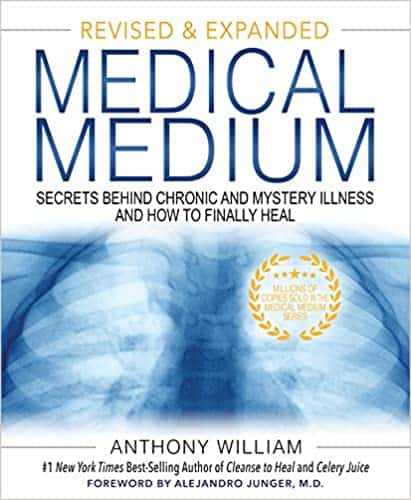
Anthony William
I’m reading the book Medical Medium by Anthony William. In the book, he’s talking about Epstein-Barr Virus being something that causes a whole cascade of events down the line that end up turning into symptoms like chronic fatigue and so forth. How do you go about finding something that has been elusive for a decade like that?
It’s interesting. These things are oftentimes called great mimickers right or great imitators, because a lot of things can mimic things like fatigue, inflammation, or neurological symptoms, et cetera. It’s important not to hang your hat on one thing and say, well, that’s the problem for me.
I say this in complete love. Sometimes it’s hard to bring nuance and context into a book, but the medical medium boils everything down and Epstein-Barr Virus. I think that’s a very reductive way of looking at it.
Alejandro Junger is one of my best friends. He wrote the Foreword, and then it’s Anthony William’s book. I think he’s doing a lot of good things. He’s getting people on healthier whole foods. I think that’s a good thing.
Ultimately, if I hung my hat on this cause for everybody all day long, I’d be proven wrong a lot. Epstein-Barr Virus specifically, statistically, about 95% of US adults have had exposure to Epstein-Barr Virus. To his point, and I would 100% agree with him on this point, diagnostics aren’t great when you’re looking at chronic viral infections. It’s important not to be too flippant with your words and say Epstein-Barr Virus is nothing, but I don’t think it’s everything either.
I’m pretty middle of the road, context matters, and labs aren’t everything, because there’s no perfect labs out there. There are snapshots in time for these great mimickers and great imitators. They can hide very well in labs.
Taking that sort of middle ground objective approach, I see reactivated viral infections quite a bit. Epstein-Barr Virus, Cytomegalovirus, Human Herpes 6 Virus, they are a problem and should be addressed appropriately when they are a problem. But for some people, it’s not Epstein-Barr Virus, or I would say this. Epstein-Barr Virus is reactivated and perpetually reactivated because of something like mold toxins or mycotoxins. You have to look at the environment in which that virus can even reactivate.
A health history illuminates things that haven't been looked at—giving it a fresh perspective and thoughtful insight into what people need. Share on XSometimes people chase things like viral infection, oftentimes, because of medical mediums books. They think that’s their thing. If I just deal with my things, all my problems will go away. The reality is it’s rarely just one thing. We have to look at what’s called the bio terrain or the context of the system at large. We have to look at all the confluence of factors, this perfect storm of variables that are at play of which Epstein-Barrs Virus could be a part of that.
These things don’t happen in a vacuum, either. The body is brilliantly interconnected. Oftentimes, Epstein-Barr Virus will be perpetually reactivated. You’ll see early antigens being positive against Epstein-Barr Virus in labs. Even the conventional lab will label it as a reactivation of this virus. Okay, why?
We have to look at all the other variables that are contributing to this perfect storm of what’s keeping the body in this sort of sympathetic fight or flight stressed inflamed state. There’s physiological stressors like mold, toxins that we have to look at or you mentioned Lyme, and it’s coinfections, but BCM, Bartonella, we have to look at that.
To answer your question more pointedly, labs, health history, and clinical experience, to be able to give this person the attention that they deserve and adjust the protocol accordingly. That’s really the answer, because we have data. We have some of the best labs out there now. Whereas a decade or so ago, we didn’t have that. In another 10 years, we’ll have even better labs.
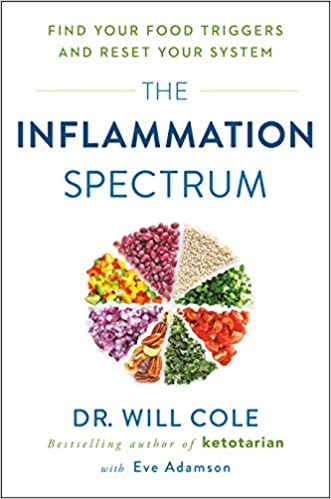
Every year, I’m hopeful that we’ll get objective data for these people that have been struggling for a long time, and it’s extremely important for me to give them answers. The labs are only a part of it, though, right? We don’t want to just get a pile of labs and just look at our problems, then it’s like, what are we going to do about it? It’s really giving the time that it needs and the attention it needs.
Even look at Lyme, Borrelia burgdorferi, corn infections, Epstein-Barr Virus, or another herpes virus, or people that have mold toxins like Aspergillus, Stachybotrys, the ochratoxins that are released from these, and different toxins that are released from these toxic mold. What are the commonality? They’re biotoxins.
They’re just toxins that are released from bacteria, viruses, and mold. We want to address all of them appropriately. That’s back to that bigger thing of bio terrain. Do we always have to know exactly the exact bug that’s going on? Not necessarily squabbling over that. Debating over that isn’t very helpful in most cases.
Sometimes, it does adjust protocols, like certain agents, certain antimicrobials, or certain antivirals, certain antifungals. We’ll work better based on lab data. But oftentimes, there are some core things that we need to be supporting, like binders, biofilm disruptors, detox support, antimicrobials, and improving overall the bio terrain, and dealing with any past stress and trauma that’s contributing to that person being stuck in that sort of autonomic sympathetic response. These are the things that I’m always juggling. What needs attention and what doesn’t need attention? And giving it the time it needs.
What’s an example of a lab that is newer or more advanced now from 10 years ago or just wouldn’t maybe even have existed?
I’ve been doing this for the past 12-ish years. Some of the really good labs that probably weren’t all available, at least in their current form. Even if they’d lab themselves around that time, their technology has improved. I think Cyrex is doing some really brilliant things and has for the past eight-nine plus years, at least. I don’t know the exact date, but I’ve been using them for quite a bit. Their technology, their arrays, their data, biomarkers, are expanding every few years.
I think Cyrex really is helpful for us as a clinic to provide information and to compare and contrast that as we’re integrating protocols in somebody’s life.
I think that IGeneX and Armin are doing really smart things within the Lyme literate world. I think that as far as hormonal testing, the DUTCH Tests are really smart data, more accurate data than the more classic, old-school circadian rhythm testing, but looking at cortisol, awakening response, and looking at the context of the hormones, really smart that we didn’t have 10, 11 years ago.
I don’t want to underestimate just conventional labs too. I think that we can get a lot of information through quests and lab corp. I use them probably more than anything for the foundational stuff. It’s just the interpretation of those labs that I would do differently.
I want to look at where vibrant wellness resides. Where does the body function the best?
I still would look at the conventional reference ranges. They’re there and we want to acknowledge them, but I want to look at optimal and not average, and not just compare you to people who go to labs, but I want to look at where vibrant wellness resides. Where does the body function the best and get you there?
I put all that data on spreadsheets and color-coded for people so they can look at optimal, not average. Where is the functional range there? Those are some things that come to mind. Let’s mention the mold toxin test. The urine mycotoxin test is extremely helpful in measuring the most common mold toxins.
My hope is in another 10 years or so or less, that we get data on more mold toxins and more biomarkers within the mold toxins space, because there are a lot more mold toxins than we can quantify in labs. We have some good solid data and we test the most common ones, so I would say it helps most people. I know there are certain examples that come to mind over the years of consulting people. You can assume there are other mold toxins that were not being shown up in the test, in part, because they didn’t have the biomarker for it.
Some of those people just are not detoxing it on their urine. We can catch it in blood, which is an interesting phenomenon. You can catch it on a blood immune response test, the mold. Meaning, the body is responding very viscerally against the mold and it’s causing an inflammatory cascade, but it’s not coming out in the urine. You never want to hang your hat on one lab and say, this is my thing. You always want to come down to context matters, health history matters. It’s just an important part of my job.
That’s awesome. There’s the GI-MAP tests, where you send in a fecal sample, and then I think they can check for mold exposure through that as well, right?
Oh, yeah. There are some great tests that you can get. GI-MAP’s a lot. I think that’s another field that’s definitely evolved over the past decade-plus. It’s the improvement of the specificity and the sensitivity of microbiome testing.

I asked another one where I know another 10 years, we’ll have even better data. But yes, running the best data we have to date. Gut health tests can be very telling. Not just gut health specific or gut centered, but sort of a larger immunological or other pathogenic issue that may be at play.
Right. Your mucosal immune response can be picked up.
Secretory IgA and Zonulin antibodies, which are the proteins that govern gut lining permeability. You can measure different food reactions too via this as well.
Yeah, very cool. Something that 10 years ago would have been more unusual or more kind of cutting edge would be to check the particle size of the LDL. Isn’t that more of a common thing now, because it’s really about the size and the density of these particles? If they’re really small, they can wedge into the epithelial layer and do a lot of damage, especially if your genetics are that you have kind of paper-thin arterial walls and not the really resilient ones.
Absolutely. I’ve been looking at NMR tests, nuclear magnetic resonance tests, these sort of Quest, Cardio IQ, Labcorp. It has another name for it. Basically just looking at the sub-fractionation of the particles that carry cholesterol in the context of these particles. Absolutely, it’s something that we talked about in functional medicine for a long time.
We always looked at it, but it was definitely poo-pooed in conventional medicine, because they were just looking at total cholesterol. If it was above 200, they would put you on statin drugs. Many conventional doctors still do that, but it’s becoming less.
Again, context matters. We cannot just understand cholesterol metabolism off of just the serum cholesterol. That’s a very incomplete perspective on cholesterol quality. It’s changing. I think people are becoming more and more aware of not just advanced cardio profiles but more comprehensive testing at large and wanting access to this stuff.
You don’t need a third-party out-of-the-box lab to get this amazing data.
These are all conventional tests. You don’t need a third-party out-of-the-box lab to get this amazing data. Quest and Labcorp are the two biggest labs in the United States that provide this data. It’s just you need the doctor to run it, which we do for them, and then you need the interpretation of it, and then you need action steps to do something about it.
I understand that conventional model of care in that way, where it’s like, okay, it is superfluous for them, because the end result, all they need is that total cholesterol to give you that statin drug or something like it. They’re running the appropriate tests to give you the appropriate medication. If you run the NMR test, they’re going to say, okay, well, that’s good information, but we’re still going to give you that tool within the toolbox, which is that statin medication.
That can be applied to many other different sections within labs. It’s like, okay, within their system, they’re trained to diagnose a disease and match it with medication. They’re running the basic labs they need to get it covered by insurance, and then give you the appropriate medication.
When all you have is a hammer, everything looks like a nail, right?
Yes, exactly. Yeah. There’s a lot of hammers and nails going on. The reality is, in functional medicine, it does influence what we do, and what we give attention to, and compare it over time.
What are your thoughts about celery juice? That’s something that Anthony William touts a lot. I’ve witnessed my wife taking celery juice on a daily basis and feeling a lot better, so there’s something to it. I’m curious to hear what your thoughts are on it.
Yeah, I think green juices in general. I’ve always drank green juices. I think they’re good. Typically, the base of green juice is because it is so water filled. It’s easy to get a lot of juice from it.
Health is not just the absence of disease but a state of immense vitality. Share on XThere’s salt in it. The secret sauce or the magic according to Anthony William is this particular salts that are in celery that are not in anything else. It’s celery juice and not just green juice.
Yeah, I know that. I know that’s his thing. I think it is a tool within a toolbox. I have patients who have juices with celery in it too. I’ve seen celery juice specifically really help people’s digestion. They should be judicious with it, because I see many people with SIBO, small intestinal bacterial overgrowth. Too much of this stuff can really flare them up.
Bringing healthy, whole, and nutrient-dense foods into one’s life is a good idea.
I’m not saying it’s good or bad. It’s actually good, but the dose matters. How much they’re drinking matters. I don’t think it’s like a magic cure for everyone’s problem, but I do think that bringing healthy foods, whole foods, and nutrient dense foods into one’s life is a good idea.
This is a tool in the toolbox that was under that umbrella of whole foods that can be beneficial, especially for people that have stressed out digestive systems. Taking the fiber out of the vegetable, celery, and just having the juice with the salts, different electrolytes in it, minerals in it, and phyto compounds in it, it can be beneficial, certainly. I think in the context of a whole foods diet, having that as being a part of the tool within the toolbox.
Certainly, I’ve seen for people who have chronic constipation, celery juice is very helpful. People that are struggling with different digestive problems that aren’t IBS-D or loose stools, I find that celery juice can be very cleansing to the system. You’re getting nutrient density. You’re getting
vitamins, minerals, and salts into your diet, which is a good thing.
Yup, cool. I’m curious, do you do grounding, where you’re connected to the ground, or get your bare feet on grass outside, or using a grounding mat, or anything like that?
Oh, yeah. It’s cold here right now in Western Pennsylvania, but I get out as much as I can. It’s been actually pretty nice lately. I walk outside and take my shoes off whenever I can. Absolutely, it’s a very major therapeutic tool in my life, personally, and things that I integrate in patients’ lives.
I also have a few PMF max, which kind of mimic that in some ways. I definitely like the science around that.
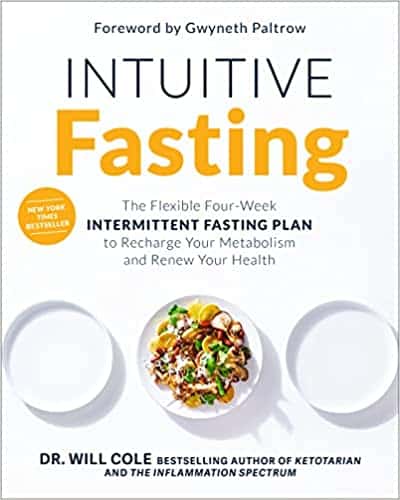
Cool. How about red light therapy and or Infrared Saunas?
Yeah, certainly. Personally, yes, and then also for patients. It’s integrated in many other protocols, because we’re dealing with people that have methylation impairments, detoxification impairments, ATP production problems, and mitochondrial problems. It’s a part of many people’s protocols.
Is one of the tests that you do typically a DNA kind of genetics test, like The DNA Company or something similar?
Yeah. We’re looking at gene data, and looking at the more clinically relevant snips or single nucleotide polymorphisms, and looking at methylation, detoxification, APO, APOE gene variants. Those are common gene variants that we look at.
We also look at HLA gene variants as well, which sort of regulates the immune system’s inflammatory response, how it recognizes the foreign tissue and its own. A mechanism for many people’s inflammation is a specific subtype of inflammation about autoimmunity, when the immune system loses recognition of self, as all the research puts it. It’s this molecular mimicry or the case of mistaken identity.
These people typically have a higher percentage of different HLA gene variants and methylation gene variants. We’re looking at all that. It’s typical, depending on the study that you look at. About a third of the puzzle is genetics. We want to look at a third to understand what that person’s own framework is, but it’s only a third.
There are two thirds as epigenetic, so it’s a lifestyle. We at least have some agency over and some influence over how our genetics are being expressed and how our physiology is being expressed. It’s definitely a piece of the puzzle with genetics and something that I look at when it’s needed. It’s the need for everybody, basically, to give them at least a perspective on once we get the body healthier, what are the things that are never going to change?
These genetics are never going to change, but what can we do to support those appropriately? If the person has a double MTHFR gene variant, they’re probably going to need a little bit more methylation support, even when we get everything healthier. HLA gene variant, what’s going on there? Maybe you are more sensitive to Lyme bacteria, viruses, or mold toxins. Even when we get everything perfect, you’re going to want to be making your life a cleanse in some ways or you want to mitigate this from happening in the future.
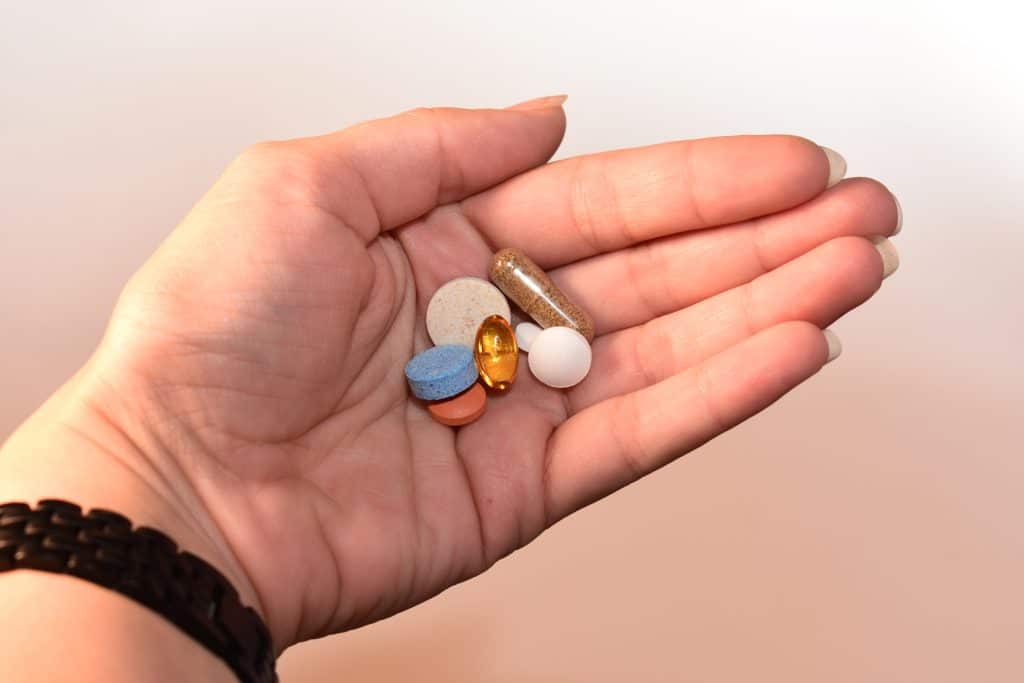
Yeah, that’s great stuff. Two more really quick questions. Binders. You take a bind with CytoDetox. What is the benefit of taking binders? I have a sense of it, but I’d love our listener to understand the importance of it.
I think there’s not one binder that works for everybody. I typically do some sort of recycling or rotation of binders, because different things will bind certain pathogens better than others. That’s why labs can be helpful in that way.
A rotational cyclical approach with things like binders, and antimicrobials for that matter, and biofilm disruptors, can be more of a synergistic approach, where if one is better for one thing, then the other would be better for the other. A blend of things like zeolite, diatomaceous earth, activated charcoal, bentonite clay, are some agents that we use to support binding.
Cool. All right, last question. How do you price your services? How do we hire you and work with you? Because clearly, you’re top of the line. I want to sign up.

I appreciate the opportunity to share my heart on this. Everything is at drwillcole.com. We have different options. It’s sort of an ascension, like different ways that I could be there for you. Everything’s at drwillcole.com. Just go to the consultation page there. There’s all the information there.
People work with me in different capacities. Some people just get labs and I’m going over their labs. Some people are going visit by visit. Some people are in sort of a concierge model, where there are weekly group calls with me. It depends on what they want.
Everybody’s looking for the same thing. That consultation also will help me figure that out too. It’s like, okay, not only what’s clinically relevant, but how can I be there for you in the way that you’re even looking for and understanding that? So I’ll make those options for you.
Awesome. Thank you so much, Will. This was fabulous. The website again is drwillcole.com. You’re most active on which social platform?
Instagram, but I’m on Facebook, TikTok, all the things there too, Twitter. Instagram is where I’m living the most in the social world.
Got it. @drwillcole is your Instagram username there. Yup, cool. Thank you so much, Will.
Thank you, my friend.
Listener, get out there and do something with this information. It’s not just edutainment. You got to change your behaviors. It starts with something small.
To have somebody like Will helping you, coaching you through these lifestyle changes so that you can live a much longer and healthier life, is really important. We’ll catch you in the next episode. I’m your host, Stephan Spencer, signing off.
Important Links
Connect with Dr. Will Cole
Books
Businesses/Organizations
People
Previous Get Yourself Optimized Episode





